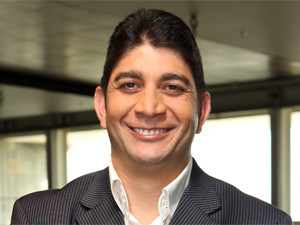
Vodacom has exited what it says was possibly its toughest year ever, and looks set to finally start bolstering its top line through value-added services, firmly moving away from being just a dumb pipe.
In the year to March, the company again reported flat revenue, which only gained 1.1% when foreign exchange benefits are stripped out, to R77.3 million. However, service revenue - which carries the effects of mobile termination pay-outs - dropped 1% to R62.17 billion.
Mobile termination rates, which kicked in last September, wiped R2 billion off Vodacom's revenue line, and R1.2 billion from its pre-tax income. This amount was anticipated, and mirrors the half-year effect it reported six months ago.
However, Vodacom says the effect of lower termination rates will slow going forward, as the biggest hit was taken in the year that has just ended. About three-quarters of Vodacom's loss is generally paid to Telkom, with the balance going to Cell C.
Towards the end of September, the Independent Communications Authority of SA decreed mobile termination rates would drop to 20c until next September - about half the rate under previous regulations - after which they would drop to 16c, and then 13c in the final year to September 2017. Cell C and Telkom Mobile will now be able to charge the duopoly 31c to terminate calls on their networks, which then drops to 24c and then 19c at the end of the glide path.
Tough year
Among other challenges Vodacom faced was the local weak economic environment, exchange rate volatility and increased competition, says CEO Shameel Joosub. During the year, Vodacom continued to drop its pricing, and the average effective price of voice calls came down to 65c, an 18% drop, while the average effective price per MB declined 24%.
This deflationary environment can be seen in Vodacom's revenue, which has tracked flat for several years. Joosub says "it's been a tough year, probably one of the most challenging we've ever faced". Adding back foreign exchange benefits, Vodacom's revenue gained 2.2%.
Despite the challenges, Vodacom continued to invest in its network in a bid to broaden capacity and coverage and take advantage of data demand. It spent a total of R13.3 billion across all its operations, and is likely to spend a similar amount this year as it kept its guidance of investing between 14% and 17% of overall revenue in the network.
Vodacom now has 61.6 million subscribers, a year-on-year gain of 7.2%. Its international operations - in Tanzania, Mozambique, the Democratic Republic of Congo (DRC) and Lesotho - account for about half this base, and about a quarter of its service revenue.
Paying off
Despite the challenges, Joosub anticipates strong growth ahead, as data demand continues to grow, but penetration rates remain low. Less than half, at 26.5 million, of its customers use data, and average monthly use of around 500MB lags the average of 2GB in the US.
Joosub points out the local operation has been rebased as more prepaid consumers make use of bundles, and contract customers have been attracted to "integrated packages". In addition, its enterprise unit is gaining traction, growing revenue 9% to R11.1 billion, which now represents 18% of group service revenue, he adds. "We have a platform for growth; the pickup in the fourth quarter supports this."
Vodacom also expects a decision on its R7 billion purchase of Neotel by month-end, with a favourable result from the competition authorities and the regulator allowing it to roll out fibre and 4G much faster.
Ovum analyst Richard Hurst says Vodacom realised the landscape has been changing and it had to change to survive. He adds it made moves to position itself for growth.
Hurst notes Vodacom's flat top line growth was expected, but its increased shift to "funky" offerings, such as insurance and mobile money, is starting to pay off as there is now "fruit on the vine". He adds the company is becoming less of a "dumb pipe".
Vodacom's shares were trading lower in early morning trade, at R142.80, down on its Friday close of R144.
Share